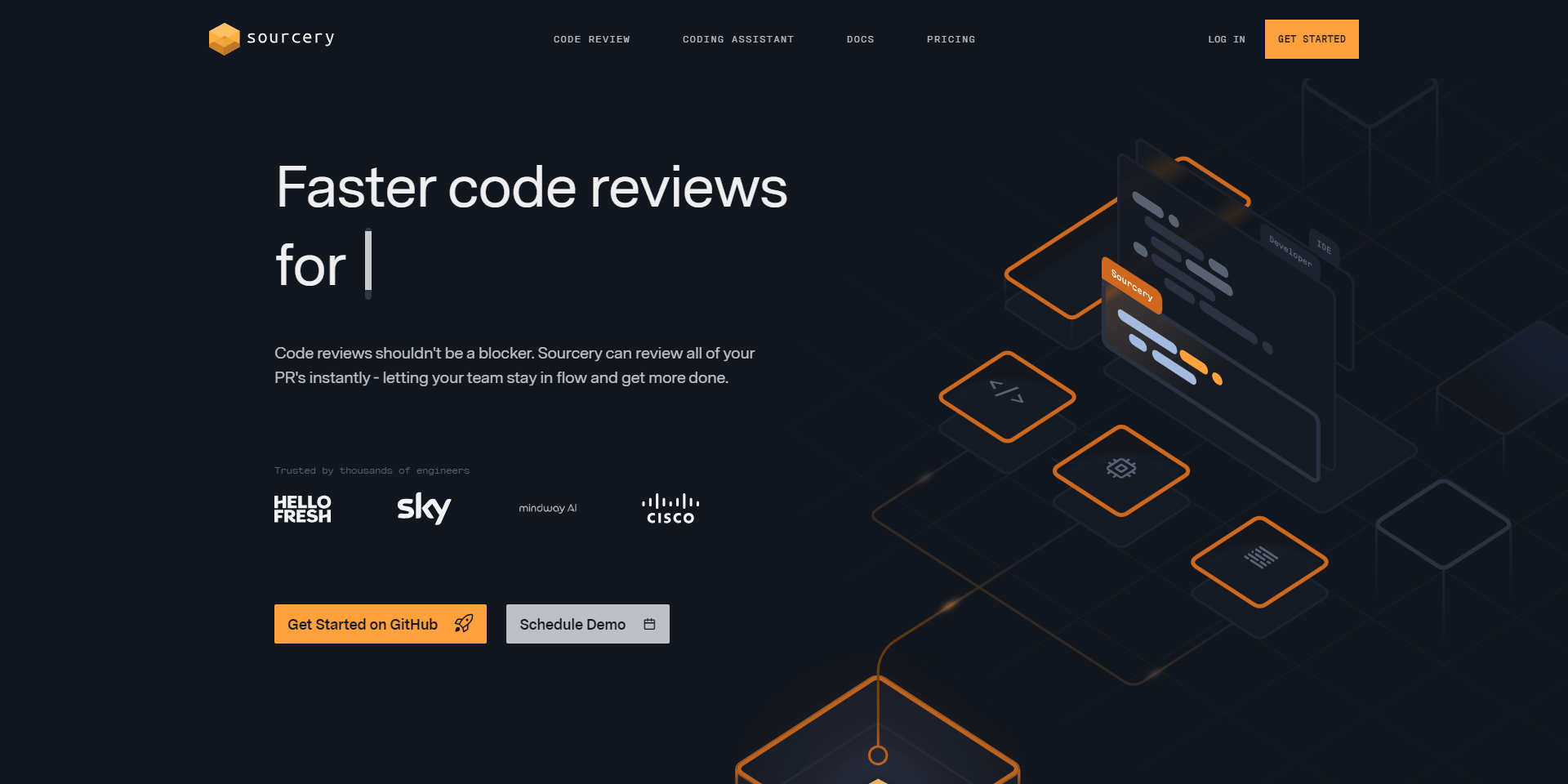

Sourcery reviews Python as you code and on pull requests, proposing safe refactors that make functions cleaner, faster, and easier to test. Inline suggestions explain why a change helps, while autofix applies mechanical improvements you can review. Quality gates and team rules enforce standards in IDEs and CI. With repo scans, hotspots, and reports, teams raise readability and consistency without slowing delivery schedules or adding meetings.
See inline proposals to extract variables, simplify conditionals, and remove duplication, each with a rationale and before/after diff to make intent obvious. Because feedback appears during editing, developers adopt better patterns naturally and avoid rework later. The result is functions that are easier to extend and test, fewer surprises in review, and code that communicates purpose clearly across modules and teams.
On PRs, Sourcery flags smells, risky complexity, and missed simplifications. Custom rules reflect team style, while checklists steer conversations toward design over nitpicks. Quality gates fail builds when thresholds slip so standards don’t erode under pressure. With objective signals, reviewers focus on behavior and edge cases, merges go faster, and regression risk drops without endless comments about style or trivial rewrites.
Apply mechanical improvements automatically for dead code, convoluted expressions, unpythonic loops, or inefficient comprehensions. Transformations preserve behavior and remain reviewable, building trust in automation. Engineers reclaim hours once spent on repetitive cleanups and invest them in tests and architecture. Over time, consistent small wins compound into a codebase that feels modern, readable, and less error-prone everywhere.
Use Sourcery in VS Code or JetBrains, via CLI, and in CI to cover the whole lifecycle. Pre-commit hooks catch issues before they land, while repo-wide scans surface hotspots so effort targets modules that benefit most. Because signals are consistent wherever work happens, newcomers learn conventions by example, builds remain predictable, and teams sustain quality even during fast-paced releases and demanding roadmaps.
Dashboards track prevented issues, adopted refactor types, and hotspots cooling over time. Reports highlight modules to focus on and celebrate improvements that matter. These views convert craftsmanship into measurable progress leadership can recognize. By pairing analytics with actionable suggestions, teams align code health with delivery goals, building habits that persist without heavy process, ceremony, or friction.


Best for Python teams seeking cleaner code without slowing releases. With inline refactors, PR gates, safe autofix, and lifecycle integrations, Sourcery builds consistency and confidence. Seniors review architecture, juniors learn patterns faster, and managers see evidence that quality is rising as routines spread across services, shared libraries, and utilities under real product deadlines.
Sourcery replaces ad hoc style comments, manual cleanups, and subjective debates with consistent, automated refactoring. Developers receive concrete, reviewable suggestions tied to rules, while builds enforce baselines. Because insights show where to focus, teams steer effort where it pays. Outcomes include clearer code, faster reviews, fewer defects, and a shared vocabulary for quality that compounds release after release.
Visit their website to learn more about our product.


Grammarly is an AI-powered writing assistant that helps improve grammar, spelling, punctuation, and style in text.

Notion is an all-in-one workspace and AI-powered note-taking app that helps users create, manage, and collaborate on various types of content.
0 Opinions & Reviews